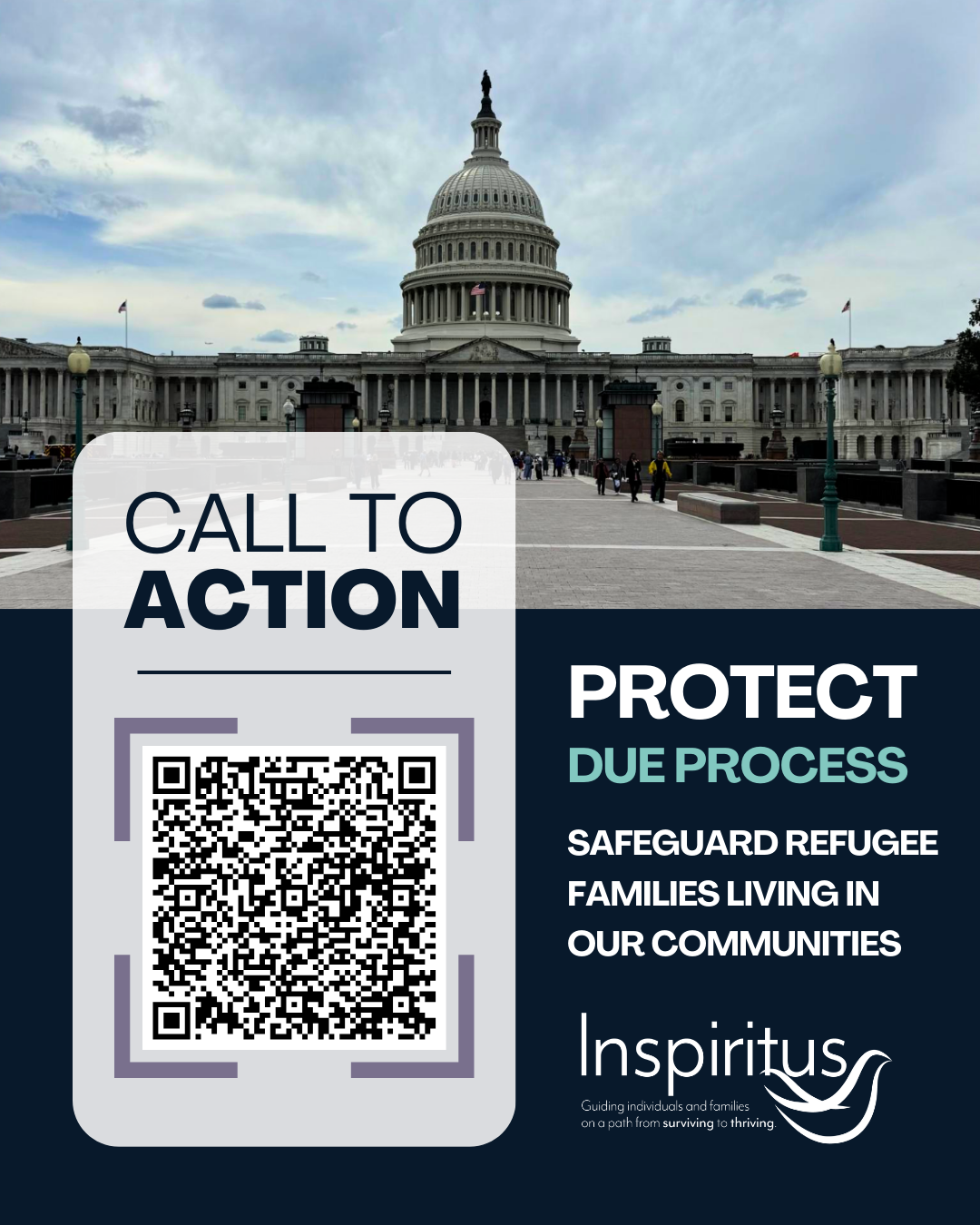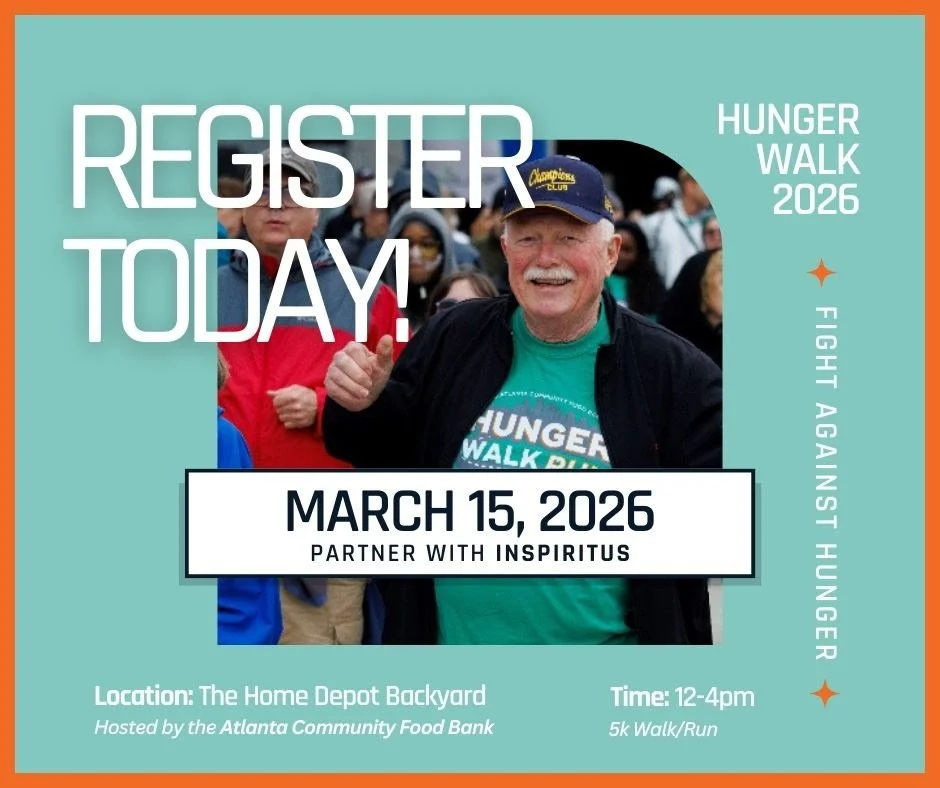Inspiritus speaks to ABC News: "Everyone Needs A Family."
/Below is an excerpt from today's ABC News article. Please note, the views and opinions expressed in this article are those of the authors and do not necessarily reflect the official policy or position of Inspiritus, Inc., a nonpartisan and nonprofit agency.
The hope for refugee resettlement
In 2016, there were nearly 325 refugee resettlement agency offices across the United States. By the end of 2019, more than 100 of those sites had to permanently shut down or suspend their services, according to Krish O'Mara Vignarajah, the president and CEO of Lutheran Immigration and Refugee Service. Vignarajah said her organization, alone, had to close 17 affiliate programs during the Trump era.
"Our organization has had to reduce staff almost every quarter over a four-year period, and it's always agonizing to figure out who's the next staff member who's going to have to go," said John Moeller, head of Inspiritus, a resettlement agency that works in Georgia and Tennessee.
His organization's capacity has been reduced by 80% in the Atlanta area and, between the two states, has lost 50% of its staff.
"That means that you lose cultural competence, you lose language skills, you lose specialization in this field," he added.
To keep programs across the country alive, agencies moved staff to other immigration services that were less severely impacted or digging into their own funds as federal resources dried up.
For Zakaria Abdulrazek, 44, that has meant losing co-workers and sweating whether he was next -- even as he struggles to bring his own family to the U.S. from his native Sudan.
Abdulrazek fled Darfur in 2003 amid the genocidal violence, escaping to Libya and then Malta -- and seven long years later, he arrived in the U.S.
Now, Zak works for Inspiritus in Atlanta as a case manager, helping the latest waves of refugees adjust to life in their new home country.
Zak Abdulrazek, a Sudanese refugee who's lived in Atlanta for over a decade, is trying to bring his wife to the U.S., but he told ABC News her application has faced long delays.
But that journey has been a lonely one. He met his wife a few years ago while visiting Sudan, marrying in 2018 and having a daughter last year. But between the coronavirus pandemic's impact on visa processing and Trump's ban on immigration from Sudan and other Muslim majority countries, his family remains separated.
While Zak's encouraged by Biden's executive order (Biden pledged to increase the annual refugee admissions cap to 125,000 in the 12-month period starting Oct. 1.), he's still waiting to see how it will impact his wife's visa application.
"Still we need actions, so we are waiting, hoping it will be better than before," he said.
In the meantime, he worries for their safety, especially as violence flares up again in the Darfur region and Sudan struggles with fuel and food shortages and an economy on the brink of collapse. He said that a close friend returned last month to visit family in Darfur when militant forces targeted him as a U.S. citizen and killed him.
Josine Izabayo, a 24-year-old refugee from Democratic Republic of Congo, moved to the U.S. last year and is adjusting to life in Georgia on her own. She told ABC News she's had a hard time adjusting to life in the U.S., especially without her family who remain overseas.
'Everybody needs a family”
Advocates say the U.S. must do more to meet the historic need. There are more than 80 million people forcibly displaced worldwide, according to the United Nations High Commissioner for Refugees, including 26 million refugees.
Josine Izabayo, a 24-year old refugee from Democratic Republic of the Congo, made "the very difficult decision to quit your country" in 2014, fleeing the DRC's relentless conflict that made her an orphan. She spent six years in Uganda stuck "in process," she said, awaiting word on resettlement.
"I came to a new country, new life without knowing anybody," Izabayo told ABC News.
One year ago, she moved to Clarkston, Georgia, outside Atlanta. But her adopted family of nine has not been admitted, their applications left in the balance.
"Everybody needs a family to support and to be with, and so it is very challenging for me," she said. "Hopefully, it will be good... soon."
We hope so, too, Josine!
Please consider donating to our refugee services and programs today, so we can continue our work to reunite families. As always, thank you for the compassion, support, and care you provide to the refugees we serve. We couldn’t do this work without you!
With Gratitude,
Virginia Spencer
Chief Development Officer
Inspiritus
















